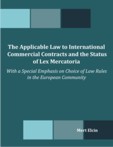Add abstract
Want to add your dissertation abstract to this database? It only takes a minute!
Search abstract
Search for abstracts by subject, author or institution
Want to add your dissertation abstract to this database? It only takes a minute!
Search for abstracts by subject, author or institution
Immovable property tax administration in Kumasi Metropolis. Prospects and challenges
by Ama Serwaa Acquah-Ababio
| Institution: | Kwame Nkrumah University of Science and Technology |
|---|---|
| Year: | 2016 |
| Posted: | 02/05/2017 |
| Record ID: | 2125368 |
| Full text PDF: | http://dspace.knust.edu.gh:8080/jspui/handle/123456789/9389 |
Property tax is a major source of local revenue throughout the world and Ghana is no exception to this phenomenon. In Ghana, it has been proven that for many local governments (MMDAs), property tax forms about 40-50% of the assembly’s revenue base. Regardless of its potentials of being source of a higher revenue generation, property tax administration in Ghana has not seen the desired results. The study takes a look at the prospects and challenges in the property tax administration in the Kumasi Metropolis and among other things to examine the structure of property taxation in Kumasi Metropolis. The research was conducted in the First class residential areas in Kumasi with Ahodwo as the focal point. This is because it is easier to find property owners to interact with than other first class residential neighbourhoods in the Kumasi Metropolis. Findings from the survey among other things revealed that property tax collection is undertaken through out-sourcing and in-housing. Due to excessive cost of carrying out the revaluation, the Assembly rarely undertakes revaluation, and that delay in fixation of the rate impost attributable to the bureaucratic procedures that are involved. The major challenge in the administration of property tax is that, the Local Government Act mandates the MCE as both administrative and Political head. There is therefore the possibility of manipulations by Metropolitan Chief Executive (MCE) especially in the area of tax evasion to avoid prosecutions for familiar people. There is the possibility of the MCE interfering in the work of the Rating Division of the assembly. The challenge is in the administration of the rate is the absence of education on projects that have been executed by KMA using revenue from property rate. This discourages taxpayer’s commitment to the payment of the tax Some recommendations were made which includes creating an awareness of projects that have been undertaking as a result of revenue from property rate. The research is limited to property tax administration by Kumasi Metropolitan Assembly (KMA) A thesis preseented to The Department of Planning in partial fulfillment of the requirement for the award of Master of Development Policy and Planning, 2015 KNUST
Want to add your dissertation abstract to this database? It only takes a minute!
Search for abstracts by subject, author or institution


|
Time for the Appeal Tribunal in Investment Arbitra...
Lessons from WTO and Transitioning to the New Era
|

|
Identifying Juvenile Firesetters
A Survey of the Operating Procedures, Risk Assessm...
|

|
Implicity of Electronic Contract Formation
With Reference to Email and Website
|

|
Prisons in the Neoliberal Era
Class and Symbolic Dimensions
|

|
The Applicable Law to International Commercial Con...
With a Special Emphasis on Choice of Law Rules in ...
|

|
Incapacitating the Innocent
An Investigation of Legal and Extralegal Factors A...
|

|
Reasons for Disclosure in the Physician-Patient Re...
How Physician Conduct and Reimbursement Methodolog...
|

|
The Contribution of Natural Law Theory to Moral an...
|